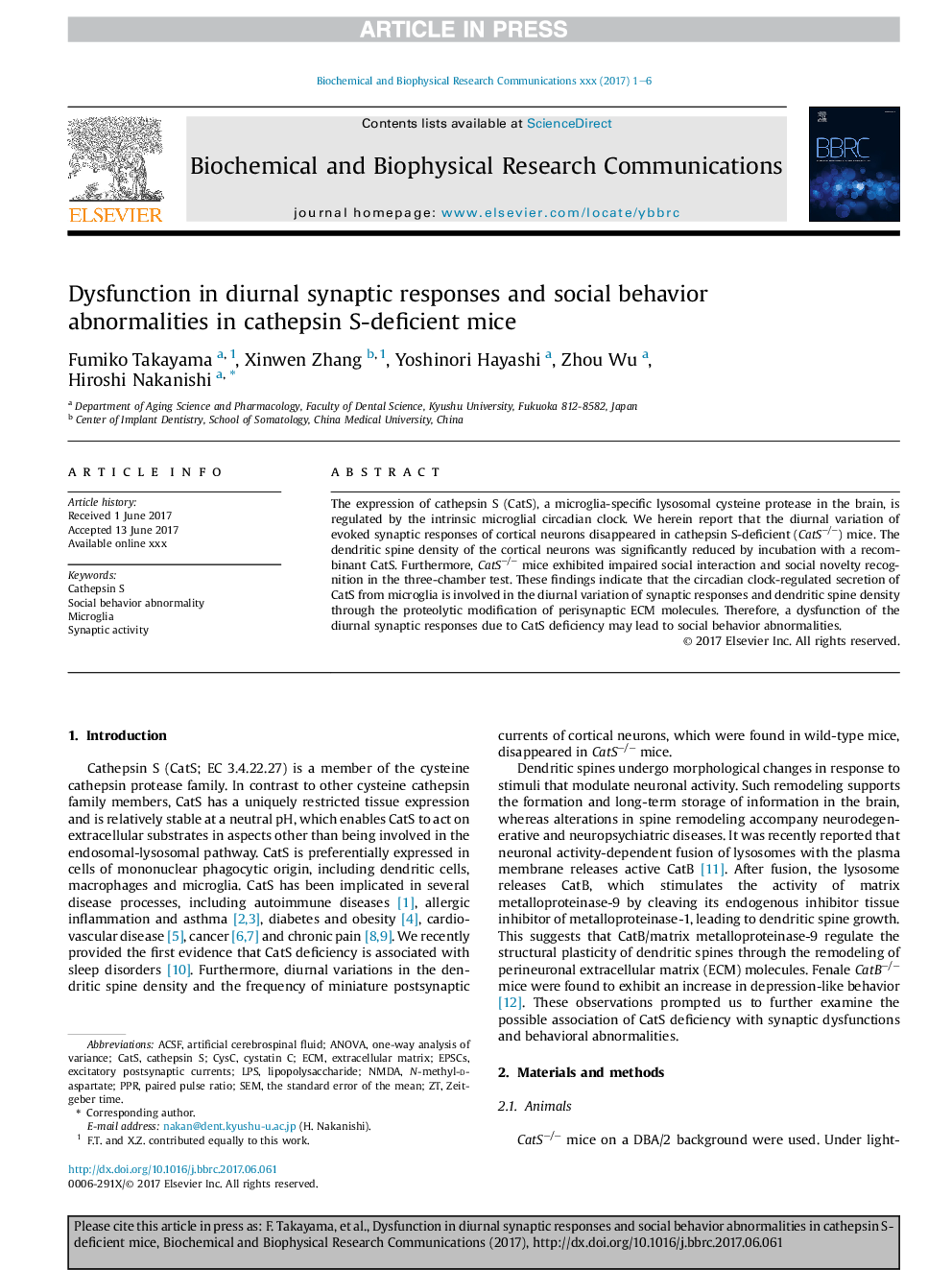| Article ID | Journal | Published Year | Pages | File Type |
|---|---|---|---|---|
| 5505250 | Biochemical and Biophysical Research Communications | 2017 | 6 Pages |
Abstract
The expression of cathepsin S (CatS), a microglia-specific lysosomal cysteine protease in the brain, is regulated by the intrinsic microglial circadian clock. We herein report that the diurnal variation of evoked synaptic responses of cortical neurons disappeared in cathepsin S-deficient (CatSâ/â) mice. The dendritic spine density of the cortical neurons was significantly reduced by incubation with a recombinant CatS. Furthermore, CatSâ/â mice exhibited impaired social interaction and social novelty recognition in the three-chamber test. These findings indicate that the circadian clock-regulated secretion of CatS from microglia is involved in the diurnal variation of synaptic responses and dendritic spine density through the proteolytic modification of perisynaptic ECM molecules. Therefore, a dysfunction of the diurnal synaptic responses due to CatS deficiency may lead to social behavior abnormalities.
Keywords
Related Topics
Life Sciences
Biochemistry, Genetics and Molecular Biology
Biochemistry
Authors
Fumiko Takayama, Xinwen Zhang, Yoshinori Hayashi, Zhou Wu, Hiroshi Nakanishi,
